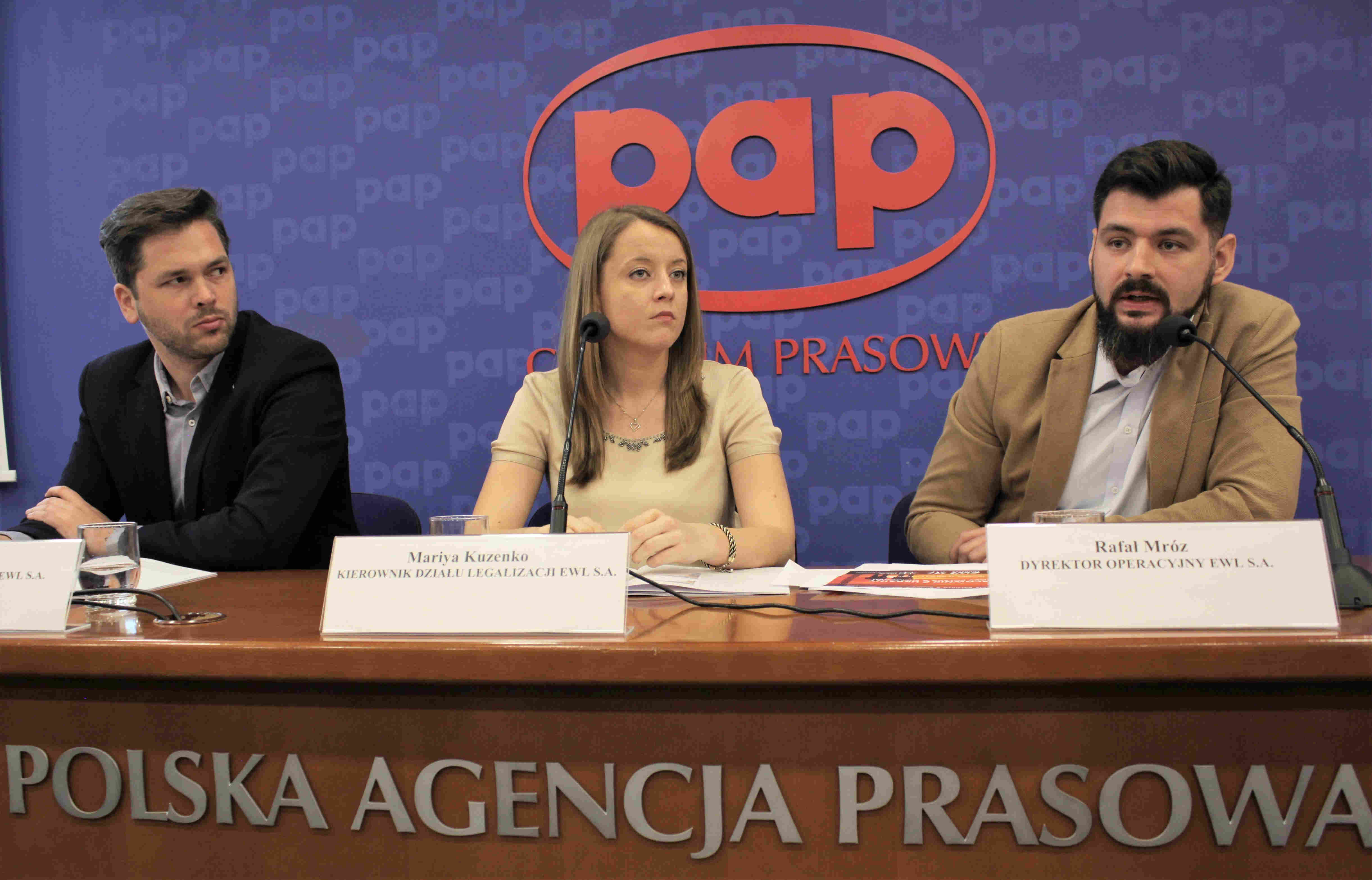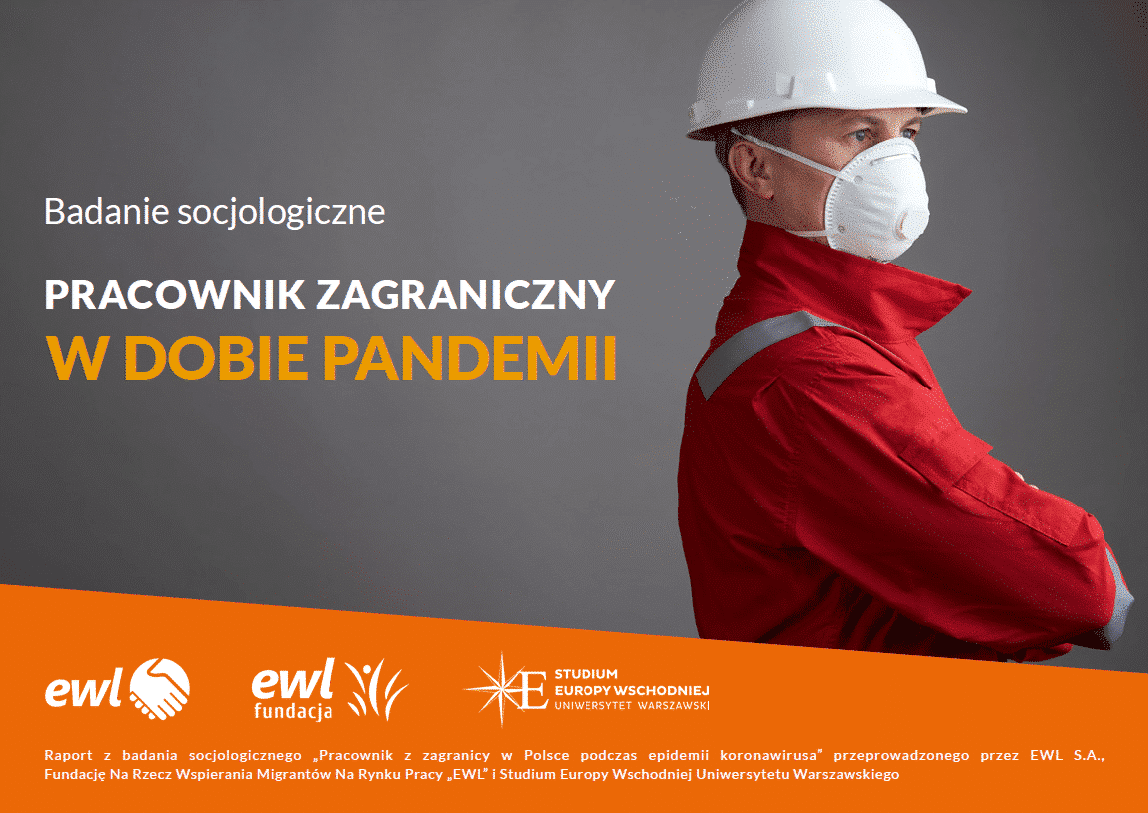Every third Ukrainian citizen working in Poland is already planning to take up employment in Germany, but only 2.6% of Ukrainians employed in Poland meet the main criteria set by the German government. This is evidenced by the results of the sociological study ‘An employee from Ukraine – between Poland and Germany’ conducted by EWL S.A. and the Centre for East European Studies at the University of Warsaw, the presentation of which took place on 17 June.
The report showed that despite a high popularity of Poland as a direction of labour migration, 45% of the interviewed Ukrainians working in Poland were plannning to continue their careers in other countries.
Compared to last year’s survey, the number of people considering work in Germany increased by 7 percentage points. Every third Ukrainian citizen currently working in Poland plans to work in Germany. The Czech Republic came second (13%). It is worth noting that the countries of Northern Europe – Sweden, the Netherlands and Norway – are next with 7.2%, 6.8% and 6.6% respectively. Let us add that a year ago only 1.5% to 2% of Ukrainians working in Poland were planning to go to these countries. It should be noted that Ukrainians are becoming increasingly interested in the countries traditionally chosen by Poles. This is undoubtedly the result of the experience gained during their stay in Poland and the fact that Ukrainian economic migrants learn about the migration directions of Polish residents.
The study showed that in the group of Ukrainian workers already planning to take up employment in Germany, one in five respondents declared that they would move as early as 2019, i.e. even before the new migration policy in Germany entered into force. As for those willing to go to work in Germany in 2020, the number almost doubles. One in four Ukrainians is thinking of moving to Germany in 2021 or the following years.
More than ¾ of Ukrainians working in Poland already know that Germany plans to open its labour market to people from non-EU countries in 2020. Their knowledge of the specific requirements is slightly worse. The criteria a foreigner has to meet in order to find employment in Germany are not known to more than half of the respondents.
The biggest obstacle for Ukrainians in plans to go to Germany is their lack of language skills. In the same group (Ukrainian citizens working in Poland and planning to continue work in Germany) only 11.8% of the respondents declared their knowledge of German at the “average”, “good” or “very good” levels. Moreover, one in four representatives of the group state that they speak German badly, and almost two thirds admit that they do not know it at all.
The study shows that currently around 7.6% of Ukrainian citizens working in Poland who plan to pursue their careers in Germany meet the main criteria currently set by the German government (education and language skills), so 2.6% of the total number of Ukrainian employees in our country.
According to the collected data, more than 2/3 of the respondents who are planning to go to Germany may stay if their earnings increase. A lower language barrier is, in turn, an argument for every fifth Ukrainian worker. A very important advantage of our labour market is the possibility of obtaining a residence permit and citizenship in Poland (22%). Another motivation is free accommodation from the employer. Every tenth Ukrainian employee in Poland declares that nothing can stop them from leaving our country for Germany.
‘The German market, more open to migrants, will surely constitute competition for Polish companies. Partial migration of employees from Ukraine to Germany cannot be stopped as we cannot compete with Germany in terms of earnings. Still, we are far from recognizing new German regulations as the dark scenario for Polish companies. Both, the requirements set for candidates applying to work in Germany and language barriers will limit the scale of migration from the East.’
comments Andrzej Korkus, CEO of EWL S.A.
The sociological study ‘An employee from Ukraine – between Poland and Germany’ was conducted from 17 April to 31 May 2019 by EWL S.A. and Centre for East European Studies at the University of Warsaw. 855 Ukrainian citizens working in Poland were interviewed directly.
Download the report [doc id=43406]



